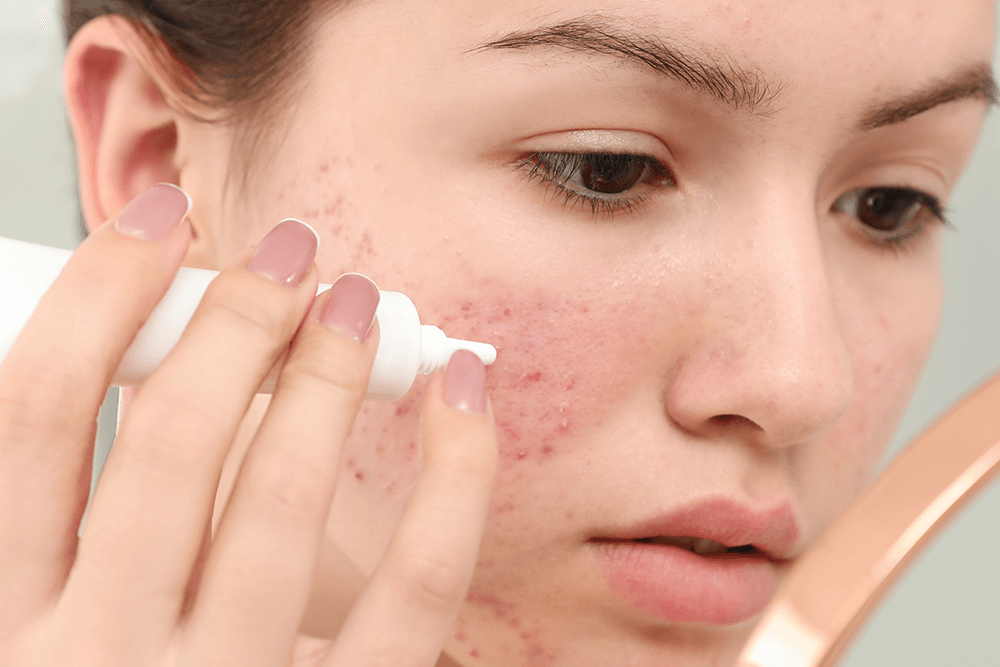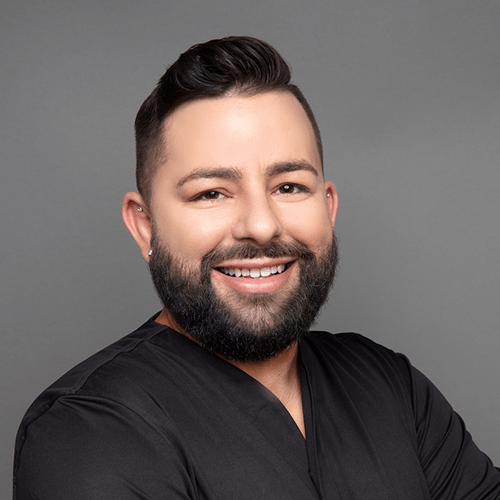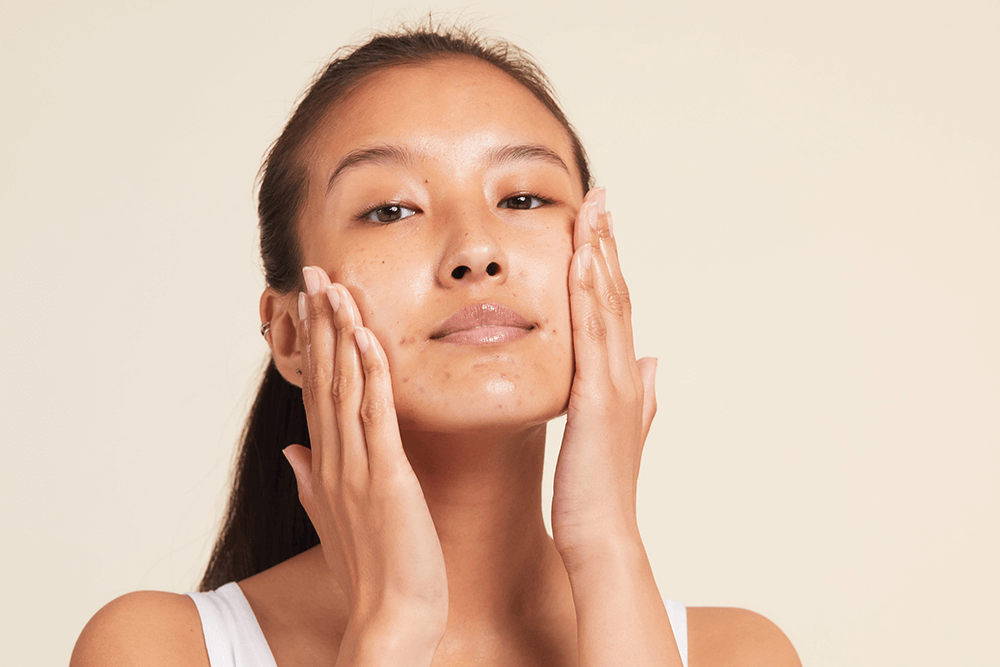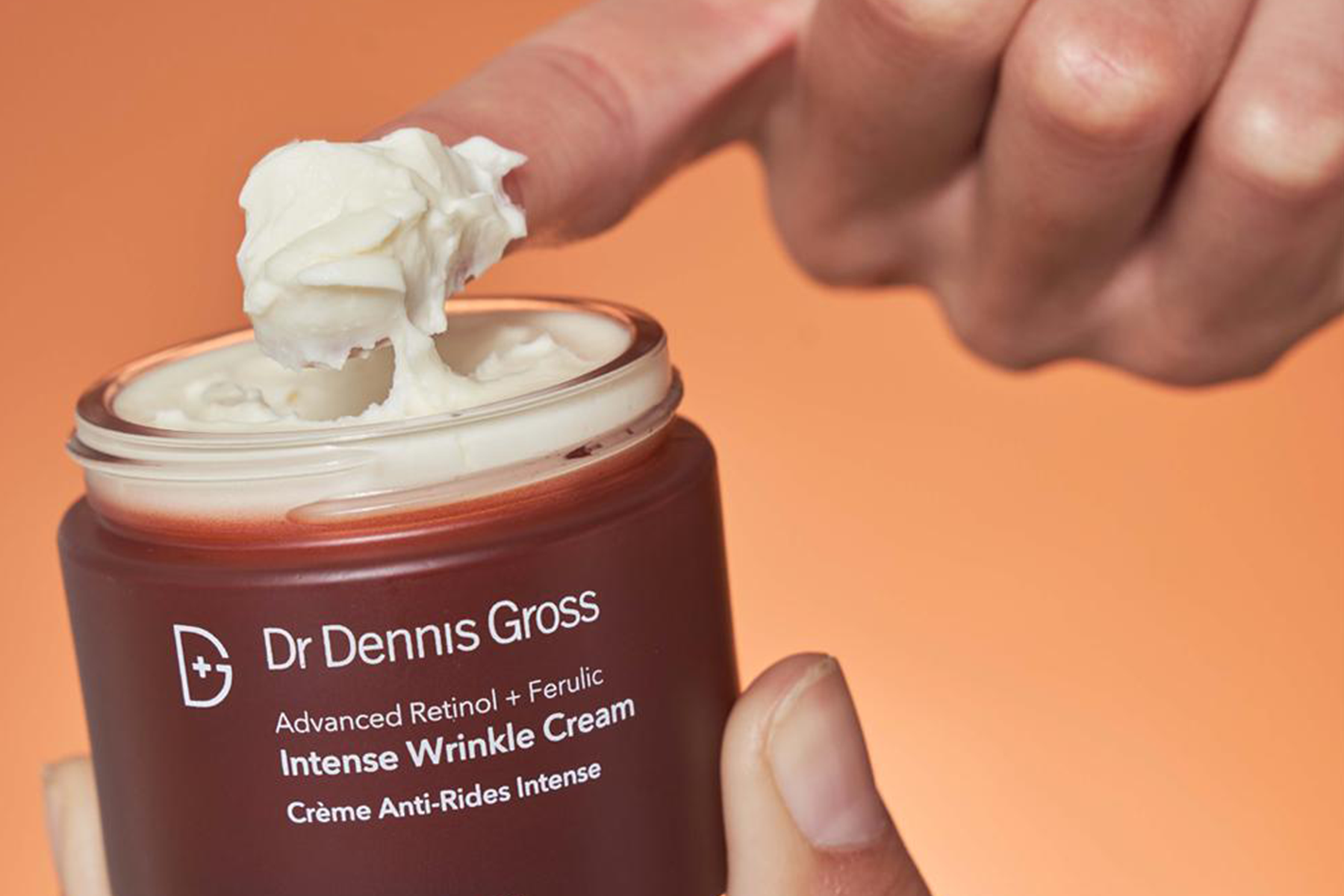The+Source
If you’ve been on TikTok lately, you’re aware that people can’t stop talking about tretinoin. But what is tretinoin, the prescription-only topical, and does your skin need it? Read on to find out.
#1: Tretinoin is related to retinol
Like the uber-popular over-the-counter ingredient, tretinoin is a derivative of vitamin A. Tretinoin is the generic name of retinoic acid. (You probably know it by one of its most popular brand names: Retin-A.) Both retinol and tretinoin belong to the class of ingredients known as retinoids. Unlike retinol, which anyone can buy, tretinoin is only available for purchase with a doctor’s prescription.
#2: How tretinoin works
The beauty of vitamin A derivatives is that they increase both cellular turnover and collagen production, as well as inhibit tyrosinase (the enzyme in charge of melanin production). This means that if you’re diligent about your application, your vitamin A derivative will even out your skin’s tone and texture, reduce the appearance of acne, and minimize fine lines, wrinkles, and hyperpigmentation over time.
Where a prescription retinoid like tretinoin has an advantage over its OTC cousin retinol is in its chemical structure. Retinoic acid (aka tretinoin) regulates gene expression by activating the retinoic acid receptors (RARs) on skin cells. This is what makes the magic happen (read: increased collagen production and accelerated cellular turnover). After it's applied to the skin, retinol must undergo a two-step process that converts it into retinoic acid.
Since tretinoin already is retinoic acid, it doesn’t undergo any intermediary conversion steps, making it stronger than retinol. As a result, it can produce faster, more noticeable improvements in the skin—but those can be accompanied by an inordinate amount of redness and inflammation.
#3: How to use tretinoin
Start slowly, applying a low concentration (.05%) every third night before bed, after washing your face. Use a pea-size amount and work it from the outer edges of your face inward. Follow with moisturizer. As your skin becomes accustomed to tretinoin, you can begin applying it every other evening, before making it a consistent part of your nightly routine.
#4: Tretinoin side effects
All vitamin A-based topicals make skin more sensitive to the sun because they’re continually bringing fresh, new cells to the surface. As a result, daily SPF application is essential. OTC retinol is known for triggering irritation—especially in those with sensitive complexions. Since tretinoin is more powerful than retinol (10 to 20 times more, according to studies), its tendency to cause redness, dryness and flaking is even more acute. Particularly in the skin of color, this irritation can lead to post-inflammatory hyperpigmentation, defeating the purpose of using tretinoin in the first place. Starting low and slow (with a small concentration of tretinoin every few days) will help minimize the risk of irritation. Some skin inflammation or reaction is normal.
What’s not normal is blistering, swelling, extreme redness, or irritation that grows increasingly worse. If you develop any of these symptoms, stop using tretinoin immediately and book an appointment with your dermatologist. (Note: If you already know you’re the sensitive type, you may want to avoid tretinoin from the get-go. Stronger doesn’t always equal better, and retinol technology has improved by leaps and bounds over the past few years. It’s now possible to see substantial skin improvements from an OTC version, which doesn’t carry the same risk of negative side effects as the more potent prescription variety.)
#5: Who should avoid tretinoin
None of the topical vitamin A derivatives, including tretinoin, have been thoroughly studied in those who are pregnant or breastfeeding. Therefore, they aren’t recommended for use in anyone pregnant, trying to become pregnant, or those who are breastfeeding. Since tretinoin is a drug, you’ll also need to tell your doctor about all other medications you may be taking, so that they can ensure starting tretinoin won’t result in any negative interactions.
#6: Products to skip when using tretinoin
Since tretinoin tends to increase sensitivity, don’t rock the boat by adding more things to your routine that can also be irritating. This means astringents, alcohols, scrubs, and anything else harsh and/or drying. Of course, we have to touch on chemical peels. If and only if you’ve been using a low concentration of tretinoin for at least 6 – 8 weeks without irritation, you can introduce a chemical peel into your daily regimen. However, don’t use them one after the other. Instead, try your peel in the morning and apply your tretinoin at night. And use a gentle peel, such as Dr. Dennis Gross Alpha Beta Ultra Gentle Daily Peel, as opposed to a high-intensity version. If your skin develops any redness or reaction, halt the peels.
Try These Products Instead
Discover Dr. Dennis Gross Skincare for All Your Skincare Needs
For more skincare tips from the experts at Dr. Dennis Gross, check out our blog’s newest content today. Shop the collection of Dr. Dennis Gross bestselling skincare backed by dermatologists.







